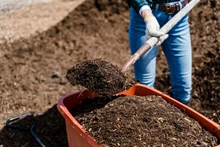
The recent clearance by the Central Insecticides Board (CIB) to use the pesticide in tea plantations may jeopardize Assam tea safety standards, according to a group of the state's prominent tea planters. Even those who are not opposed to the move stated that the maximum residue level (MRL) must be maintained.
According to the Centre's Banning of Insecticides Order, 2020, the pesticide is an organophosphorus chemical that is "highly toxic" and that alternatives are available for use. Dimethoate was prohibited in 31 countries, including the EU, Cameroon, Saudi Arabia, Sri Lanka, and Suriname, to name a few.
According to the minutes of the 446th meeting of the Registration Committee (RC) of CIB, held on April 12 and published on Friday, ad hoc approval for the use of dimethoate against the tea mosquito insect in tea plantations has been granted for a one-year period.
The committee also directed the United Planters Association of Southern India (UPASI) and Kannan Devan Tea to submit the residue data as soon as possible in accordance with the CIB&RC guidelines, after which it will be reviewed by the relevant technical experts and SPPR, FSSAI, and the final reports will be submitted to the RC for a final decision.
"The decision to allow this dangerous chemical to be sprayed on tea against helopeltis- the tea mosquito bug- may prove quite harmful for human consumption at a time when tea plantation is heading to a safe mode with the use of safer chemical compounds that were under use recently," said PK Bezbaruah, a well-known tea planter from Assam and former chairman of the Tea Board of India. Following the RC approval, he was concerned that the pesticide will be used in Assam as well.
"It's time to differentiate tea based on what the tea garden management sprays," remarked Bezbaruah. "If the maximum residue level is not exceeded after 'dimethoate' use, there is no reason to be concerned," said Bidyananda Barkakoty, an adviser to the North Eastern Tea Association. ''While dimethoate is unquestionably a poisonous substance, the crop requires a safe interval between spraying and plucking.
However, scientific data on pesticide residues must be reviewed before widespread use," stated AK Barooah, former director of the Tocklai Tea Research Institute. He claims that the residue level in exported tea is relatively low, and that using it without first lowering the MRL can be dangerous. He stated that the tea mosquito attack has been particularly serious, as has the increase in pest attack as a result of climate change.











